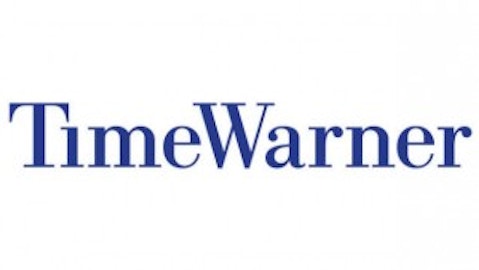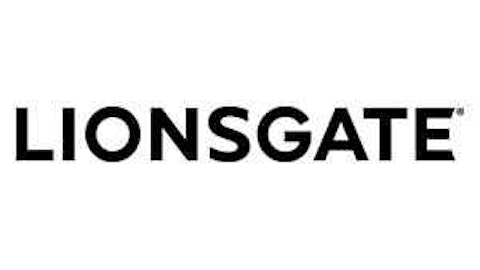Entertainment companies are powerhouses of intellectual property. Sometimes they are able to draw upon decades of characters and make profits even during bad times by rehashing old stories or re-releasing old material. This is one of the strongest moats there is.
When an entertainment company has long-term connections to distributors and popular properties, it can virtually mint money. However, there is always the need to produce new content. Let’s see how a few entertainment companies are operating as the recession’s escapism wanes.

Time Warner Inc (NYSE:TWX) is the largest media conglomerate in the world, and the second-largest entertainment conglomerate in terms of revenue. Time Warner can always turn some profit by using its New Line ownership of the Nightmare on Elm Street franchise to crank out another Freddy Krueger movie — the world can’t get enough of them. Time Warner Inc (NYSE:TWX) also has plenty of classical content via Hanna-Barbera that appeals to the Generation X crowd. Partially because of these options, the company is turning an 11% profit margin and is able to pay a 2% dividend.
I suggest watching Time Warner Inc (NYSE:TWX) primarily because of the potential profitability of the intended spin-off of Time in late 2013. Historically, spin-offs have a tendency to be good chances for companies to focus on their core businesses, as well as unload debt and other unprofitable components of themselves onto their offspring. Nonetheless, these new businesses can often thrive by being more deeply connected to their core markets and can better satisfy their needs.
Time Warner Inc (NYSE:TWX) still hasn’t managed to make HBO relevant to the portable media market — they’re still hooked on cable. This is probably a portion of why the company is trading for a half-decent 18 times earnings and 1.8 times book value. With the spin-off potential and the off chance that HBO will eventually get its act together and break the cable, I’d suggest taking a chance on Time Warner.
Serious Prospects in Non-serious Media
The Walt Disney Company (NYSE:DIS) is the biggest revenue generator of all entertainment conglomerates. Disney owns a mountain of intellectual property, including the Marvel universe of superheroes, Pixar, ABC and obviously all of the Disney characters. The company can put these characters on virtually anything, and has both media networks and consumer products divisions standing by to reap the rewards of doing so. As such, The Walt Disney Company (NYSE:DIS) has a healthy 13.6% profit margin and plenty of cash flowing through it to last through most anything. Moats don’t get much wider and deeper than this company has.
The Walt Disney Company (NYSE:DIS) has a brilliant marketing method, though not a unique one. With most advertisements, the public gets the commercial message for free. When it comes to the characters in movies, however, people pay to see what is essential an ad for movie merchandise.
The only downside I can see to The Walt Disney Company (NYSE:DIS) is that it can run afoul of its own size. Firstly, a company this large can be incredibly complicated to run. Past directors and chief executives have had issues with mismanagement and flops at the box office, which cost the company dearly. A few poorly received movies can put a serious damper on the entire operation.
Also, having such a massive pool of intellectual property to draw from can lead to decisions that aren’t popular at the time. While creating a cult classic is great, movie makers earn most of their acclaim and profits during opening weekend. Had The Avengers been released in 1998, computer graphics technology notwithstanding, there’s a good chance it wouldn’t have been nearly as large a hit as it was in 2012.
While The Walt Disney Company (NYSE:DIS) is a complicated company, it’s still trading for a relatively inexpensive 19 to 20 times earnings. This isn’t much higher than the S&P 500, and Disney has a lot that many companies don’t. So I’d recommend it wholeheartedly.
Silly profitable
World Wrestling Entertainment, Inc. (NYSE:WWE) has one of the silliest business models around. The company promotes pseudo-sports that it has outright admitted are fake and pre-determined to crowds who love it anyway. As the largest promoters of synthetic athletic contests with a large fan base, the World Wrestling Entertainment, Inc. (NYSE:WWE) has a pretty solid moat. It also has a pretty decent 4.9% dividend yield.
Wrestling goes through phases of higher and lower popularity, and as of the past few years it’s on the lower end of the sine wave. Also, the World Wrestling Entertainment, Inc. (NYSE:WWE) is trading at more than 38 times its earnings as of this writing. In addition, the WWE is only pulling 3.9% profit margins. If the faux sport’s popularity stays low for awhile, the overhead of the music and merchandising components may weigh down the company into unprofitability. Also, the McMahon family has a 96% voting hold over the company — so ordinary shareholders shouldn’t expect their opinions to be considered.
Overall, I only recommend the World Wrestling Entertainment, Inc. (NYSE:WWE) if you believe that you can hold on through several low-profit years until this type of exhibition’s popularity soars once again. This could be a solid contrarian play if you can find the WWE during a nice dip.
The Foolish bottom line
Entertainment has great potential for profit, but it is not guaranteed. Ultimately, entertainment companies rise or fall on the popularity of what they have to offer, and the public’s tastes can be fickle. Ultimately, having a wide net of different intellectual property and the ability to efficiently market it all determines how well it ends up doing.
Chris Hodge has no position in any stocks mentioned. The Motley Fool recommends Walt Disney. The Motley Fool owns shares of Walt Disney.
The article How Much Juice Is in these Entertainment Companies? originally appeared on Fool.com.
Copyright © 1995 – 2013 The Motley Fool, LLC. All rights reserved. The Motley Fool has a disclosure policy.




